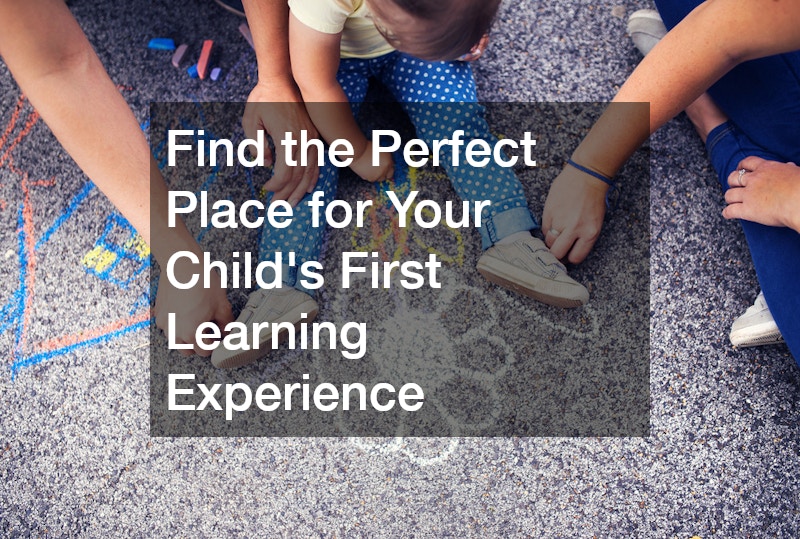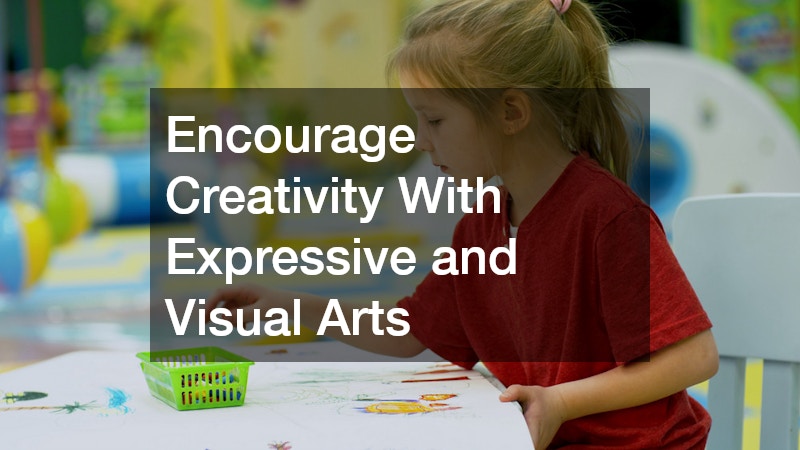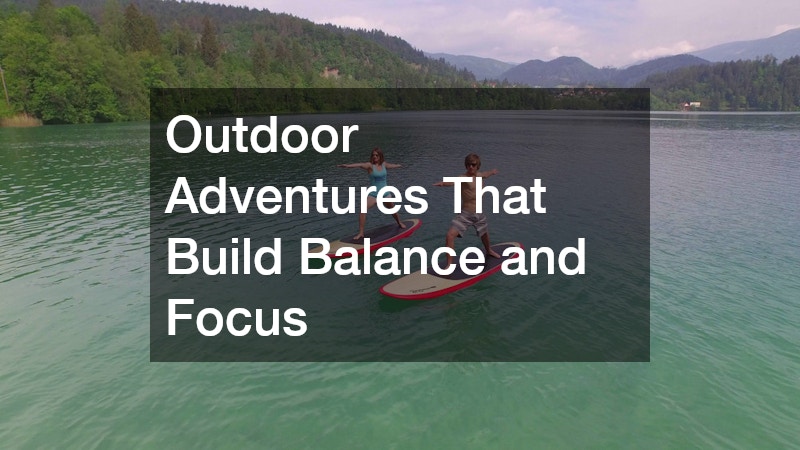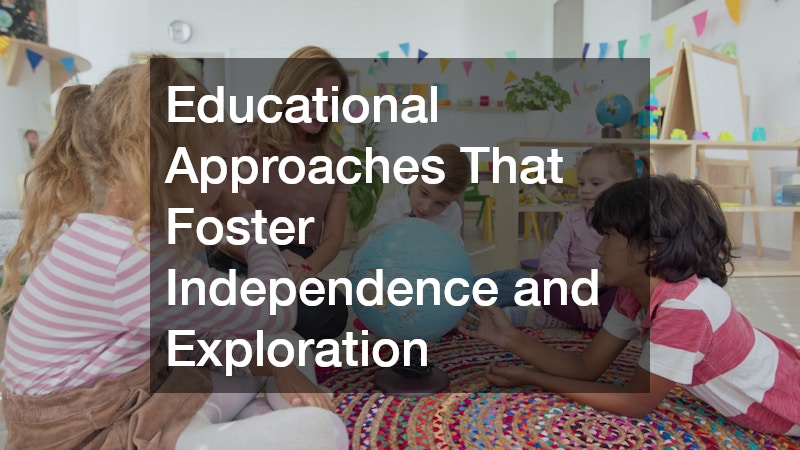Raising a child requires more than just focusing on academics or physical growth. It demands a balanced, well-rounded approach that nurtures every aspect of a child’s development. True growth encompasses emotional, cognitive, social, physical, and spiritual dimensions. When children are supported through a variety of experiences that engage their minds, bodies, and hearts, they become confident, curious, and capable individuals ready to face the complexities of life.
This blog explores holistically minded strategies to support your child’s growth at every stage. From finding the right preschool to encouraging artistic expression, a holistic approach to your child’s development is essential. Whether your little one thrives in a traditional classroom or prefers a specialized program, embracing a broad spectrum of learning and growth opportunities ensures they develop into balanced, resilient adults. It also means recognizing each child’s unique strengths and challenges, tailoring support to foster their individuality and self-esteem.
Discover practical ways to weave together diverse experiences—intellectual, physical, social, and spiritual—that foster holistic growth. By being intentional in choosing quality programs and environments, parents can create a nurturing foundation for their children’s lifelong success. Explore the many facets of a holistically minded upbringing and how to make informed choices for your child’s growth journey.
Embrace Comprehensive Methods for Nurturing Young Minds
When parents adopt a holistically minded perspective, they recognize that child development isn’t confined to isolated areas but interconnected dimensions. A holistic approach to child development promotes the idea that physical health, emotional well-being, cognitive skills, social interaction, and creativity must all be nurtured simultaneously to raise well-rounded children. For example, emotional intelligence and resilience are just as crucial as academic achievement, and physical health supports mental focus and mood regulation. A child who is emotionally secure, socially engaged, and physically active is more likely to thrive in school and life.
By embracing this comprehensive approach, parents and caregivers can better support the natural curiosity and unique talents each child brings. It encourages patience, flexibility, and mindfulness in parenting styles, ensuring that children’s needs are met holistically. This includes fostering environments that encourage play, exploration, problem-solving, and self-expression—all essential components of healthy growth.
Integrating practices such as mindful communication, balanced nutrition, regular physical activity, and exposure to diverse learning experiences helps children build a solid foundation for success. By recognizing that development is multifaceted, caregivers can tailor support to suit individual needs and stages, rather than relying solely on traditional measures of progress.

Find the Perfect Place for Your Child’s First Learning Experience
Choosing the right local preschool is a crucial step in supporting your little one’s early development. Preschools that embrace a holistic approach to child development understand the importance of nurturing emotional, cognitive, social, and physical growth equally. A local preschool that values play-based learning, social interaction, and individual creativity fosters a love of learning from the very beginning. Children are given opportunities to explore their interests in a supportive environment where teachers understand each child’s developmental milestones and personality.
In a holistically minded preschool setting, classrooms are often rich with sensory experiences, art supplies, and open-ended activities that stimulate multiple areas of development. Children learn not only letters and numbers but also social skills like sharing, empathy, and cooperation.
Parents choosing a preschool should look for programs that emphasize whole-child growth and offer strong communication between teachers and families. This partnership helps ensure that what happens in the classroom aligns with values and goals set at home. By selecting a local preschool that prioritizes holistic learning, parents give their children the chance to build confidence, curiosity, and foundational skills that prepare them for lifelong learning.
Build Confidence and Skills Through Swimming Activities
Swim lessons offer more than just an essential safety skill; they are a powerful tool for holistic child development when approached in a holistically minded way. Swimming builds physical strength, coordination, and endurance, while also fostering emotional growth through overcoming fears and celebrating achievements. Children who participate in swim lessons learn to trust their bodies and develop self-confidence as they master new skills. The water environment is soothing and engaging, providing sensory input that supports neurological development.
Swim lessons encourage social interaction and teamwork when conducted in group settings. Children learn to listen, follow instructions, and cheer on their peers, enhancing their social and communication skills.
Incorporating swimming into a child’s routine complements other forms of physical activity and supports overall health. For children who may be hesitant or anxious, gradual exposure and patient instructors create a safe space for progress. Swim lessons as part of a holistic growth plan allow parents to nurture physical health, emotional resilience, and social development—all integral components of raising a well-rounded child.

Encourage Creativity With Expressive and Visual Arts
A holistically minded parent recognizes the immense value of creative expression in child development. An art program that encourages children to explore colors, shapes, textures, and storytelling nurtures not only artistic skills but also critical thinking, emotional expression, and confidence.
Engaging in visual and expressive arts offers children a safe outlet for their feelings and ideas, helping them to process experiences and communicate in nonverbal ways. This creative freedom is vital for emotional intelligence and problem-solving abilities. Art programs designed with a holistic approach emphasize process over product, allowing children to experiment, make mistakes, and learn at their own pace. This fosters intrinsic motivation and a sense of accomplishment.
Additionally, collaborative art activities teach cooperation, sharing, and respect for different perspectives, all important social skills. Participation in art enriches language development and fine motor skills, supporting school readiness. Encouraging children to be creative through a thoughtfully designed art program nurtures their whole being—mind, body, and spirit—and lays a foundation for lifelong innovation and self-expression.
Quality Care That Promotes Early Cognitive and Social Skills
Choosing an early learning childcare center is a pivotal decision for families committed to a holistically minded approach. Quality centers go beyond basic supervision and focus on fostering early cognitive and social skills through developmentally appropriate curricula. In such centers, children are exposed to a range of stimulating activities that promote language development, curiosity, and interpersonal skills. The environment is structured yet flexible, allowing for both guided learning and free play.
Early learning childcare centers that embrace holistic principles pay close attention to emotional well-being, ensuring children feel safe, valued, and heard. Nurturing relationships with caregivers builds trust and encourages healthy attachment, which is essential for social and emotional growth. These centers also integrate physical activity and sensory experiences to support brain development. Balanced meals and rest periods are included to meet all aspects of the child’s health.
By selecting a childcare center that aligns with a holistic approach, parents ensure their children receive comprehensive support that encourages exploration, socialization, and early academic readiness in a caring environment.
Community and Spiritual Engagement Opportunities for Youth
A holistically minded approach to child growth includes spiritual and community engagement, recognizing their role in building character, values, and a sense of belonging. Church youth activities offer a unique space for children to connect with peers and mentors in a supportive, values-driven environment.
Participation in church youth activities nurtures moral development, empathy, and social responsibility. It provides opportunities for service projects, group discussions, and shared experiences that strengthen community bonds. Such activities also support emotional health by offering children a place to express themselves openly and seek guidance. For many, spiritual engagement instills hope, resilience, and purpose.
Incorporating spiritual and community elements into a child’s routine complements academic and physical pursuits, promoting holistic balance. Parents who prioritize church youth activities as part of their child’s growth journey help cultivate grounded, compassionate, and socially aware individuals.

Outdoor Adventures That Build Balance and Focus
Physical activity in natural settings plays a crucial role in a holistically minded child’s development. Paddleboard lessons, for example, offer an engaging outdoor adventure that enhances balance, coordination, and concentration.
When children try paddleboarding, they develop core strength and fine motor skills as they navigate water currents and maintain posture. This activity also encourages mindfulness and focus, as being on the water requires attention to the present moment.
Beyond physical benefits, paddleboarding fosters a connection to nature, which has been linked to reduced stress and increased happiness. Time outdoors supports mental clarity and emotional regulation. Outdoor adventures like paddleboarding provide a dynamic and enjoyable way for children to challenge themselves, build confidence, and cultivate a love for active, healthy living. Incorporating such activities into a holistic growth plan offers children experiential learning opportunities that enrich their physical, cognitive, and emotional well-being.
Innovative Learning Environments Focused on Science and Technology
STEM schools represent a modern approach that appeals to holistically minded parents aiming to nurture their children’s curiosity and problem-solving skills. These schools emphasize science, technology, engineering, and math within engaging, hands-on learning environments.
By integrating real-world challenges and collaborative projects, STEM schools develop critical thinking and creativity alongside technical knowledge. This approach encourages students to explore, experiment, and innovate, preparing them for future careers and lifelong learning.
A holistic approach at STEM schools also recognizes the importance of emotional and social development, incorporating teamwork, communication, and ethical reasoning into the curriculum. Parents seeking to support a child’s intellectual and personal growth can find STEM schools that balance rigorous academics with opportunities for holistic development, creating a well-rounded educational experience.

Educational Approaches That Foster Independence and Exploration
Montessori schools exemplify an educational philosophy that aligns well with holistically minded parenting. Montessori schools emphasize independence, hands-on learning, and respect for each child’s unique developmental timeline.
In these environments, children are encouraged to explore subjects that interest them, promoting intrinsic motivation and deep engagement. This fosters critical thinking, problem-solving, and a love of learning. Montessori schools support social development through mixed-age classrooms, where older students mentor younger ones, encouraging empathy and leadership. Physical development is also integrated through practical life activities and movement-based learning, helping children build coordination and self-discipline.
For parents who value a holistic approach to child development, Montessori schools offer a nurturing space where independence, exploration, and community thrive in harmony, preparing children not only academically but also emotionally and socially for their future.
Explore Exclusive Options for Personalized Education
Some families seek out local private schools that provide highly personalized education options tailored to the individual needs and strengths of each child. Many of these schools adopt a holistically minded philosophy, emphasizing whole-child development. Local private schools often offer smaller class sizes, diverse curricula, and specialized programs in arts, athletics, and academics. This flexibility allows educators to design learning experiences that engage multiple intelligences and foster growth beyond traditional metrics.
Private schools may also integrate social-emotional learning, leadership development, and community service as part of their core values, helping students develop empathy, resilience, and a strong sense of responsibility. Additionally, many schools provide mentorship opportunities and extracurricular activities that support well-rounded development.
For parents seeking exclusive educational environments that nurture intellectual curiosity, creativity, and character, local private schools provide an appealing option. Choosing such schools aligns with a holistic approach to child development by ensuring that academic rigor is balanced with opportunities for personal growth and well-being.
Supporting your child’s growth through a holistically minded approach means nurturing all dimensions of their development—emotional, cognitive, social, physical, and spiritual. This comprehensive perspective recognizes that children flourish best when provided with diverse opportunities that engage their whole selves.
From selecting the right local preschool to enrolling your child in swim lessons that build confidence and coordination, each experience contributes to a strong foundation. Encouraging creativity through art programs, choosing quality early learning childcare centers, and supporting participation in church youth activities help cultivate emotional intelligence, social skills, and a sense of community.
Outdoor adventures such as paddleboarding promote balance and mindfulness, while innovative STEM schools and Montessori schools provide stimulating educational environments that foster independence, curiosity, and critical thinking. Local private schools offer personalized pathways that align with a holistic approach, ensuring children receive tailored support across all areas of growth.
Ultimately, embracing a holistic approach to child development allows parents to raise well-rounded, resilient children prepared to thrive in all aspects of life. By thoughtfully integrating varied experiences and opportunities, families can create nurturing environments where children feel valued, inspired, and empowered. Supporting your child holistically is a journey, one that enriches both their present childhood and their future potential.


